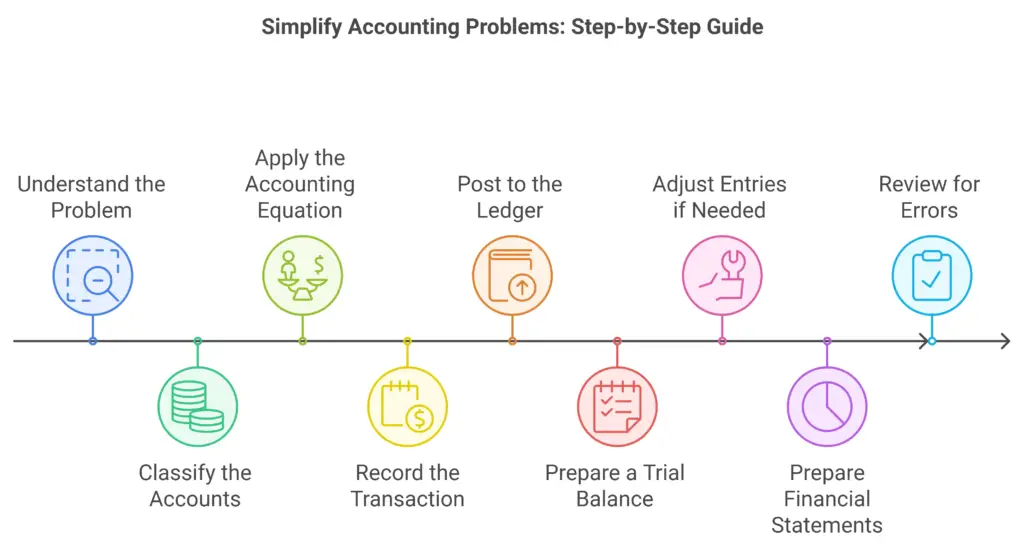10 Proven Study Techniques for Accounting Success
Why Effective Study Techniques Matter
Accounting can be a challenging subject, often requiring students to juggle complex concepts, detailed calculations, and strict deadlines. Have you ever found yourself overwhelmed, asking, “How can I improve my understanding and retain accounting concepts more effectively?”
You’re not alone. The key to mastering accounting lies not just in hard work but in adopting effective study techniques tailored to the subject.
This guide explores 10 proven study techniques that can help you excel in accounting. Whether you’re a beginner grappling with debits and credits or an intermediate student preparing for exams, these strategies will equip you to succeed with confidence.
1. Master the Basics First
Accounting concepts build on foundational knowledge. If you don’t have a solid understanding of the fundamentals, you may find it challenging to tackle more complex topics.
Actionable Steps:
- Understand the Accounting Equation: Assets = Liabilities + Equity. Ensure you’re comfortable with this core concept.
- Learn Key Terms: Familiarize yourself with essential terms like ledger, journal entry, and trial balance.
- Practice Core Principles: Work through simple problems involving debits and credits.
Test your knowledge: Can you identify whether cash is a debit or a credit in a transaction?
Example: If a company purchases equipment with cash, you would debit the equipment account and credit cash. Repeating such exercises can reinforce your understanding.
2. Break Down Complex Problems
Complex accounting problems can seem intimidating. Breaking them into smaller, manageable parts makes them easier to solve.
Steps to Simplify:
- Identify the Problem: Determine the type of accounting problem (e.g., adjusting entries or financial statement preparation).
- Break Into Steps: Write down each step needed to solve it.
- Tackle One Step at a Time: Focus on completing each step before moving to the next.
Step-by-Step Approach to Solving Accounting Problems

3. Use Visual Learning Tools
Visual aids make complex concepts easier to understand and retain.
Recommended Tools:
- Flowcharts: Use these to visualize processes like the accounting cycle.
- Graphs: Analyze financial data using bar graphs or pie charts.
- Mind Maps: Organize related concepts, such as asset classifications or types of expenses.
Example: A mind map linking the different sections of a balance sheet can help you remember the relationship between assets, liabilities, and equity.
4. Practice Active Recall
Active recall involves testing yourself on concepts rather than passively rereading material.
How to Apply:
- Flashcards: Create flashcards with accounting terms and definitions.
- Self-Quizzing: After studying a topic, close your notes and attempt to write down key points.
- Peer Quizzing: Study with a partner and test each other’s knowledge.
Do you know: What’s the difference between accrual accounting and cash accounting? Write down your answer before checking your notes.
5. Leverage Practice Problems
In accounting, practice is crucial. Solving problems helps you apply theoretical concepts to real-world scenarios.
Where to Find Practice:
- Textbook Exercises: Start with examples provided in your course material.
- Online Resources: Websites like EverythingAboutAccounting.info offer free problems.
- Mock Exams: Simulate exam conditions with timed tests.
Example Case Study:
Maria struggled with preparing journal entries. After practicing 10 entries daily, she noticed significant improvement within two weeks.
6. Form a Study Group
Collaborative learning can offer new perspectives and clarify doubts.
Benefits of Study Groups:
- Peer Explanations: Sometimes, peers explain concepts in a way that resonates better than textbooks.
- Accountability: Regular meetings ensure you stay on track.
- Varied Problem-Solving Approaches: Learn different methods to tackle the same problem.
Tip: Use tools like Google Meet or Zoom for virtual study sessions if meeting in person isn’t feasible.
7. Create a Study Schedule
Consistency beats cramming when it comes to accounting.
How to Create a Schedule:
- Set Specific Goals: E.g., “Complete Chapter 3 by Thursday.”
- Divide Time Wisely: Allocate more time to challenging topics.
- Incorporate Breaks: Use techniques like the Pomodoro Method (25 minutes of focus, 5-minute breaks).
Example Schedule:Time Task 9:00 AM – 10:00 AM Revise journal entries 10:15 AM – 11:15 AM Practice adjusting entries 11:15 AM – 11:45 AM Break
8. Use Technology to Your Advantage
Modern tools can simplify studying and improve efficiency.
Recommended Apps:
- Quizlet: For creating and reviewing flashcards.
- Excel: Practice creating financial statements.
- Accounting Software: Tools like QuickBooks offer hands-on experience.
Test Your Knowledge: Try using Excel to prepare a basic income statement for a fictional company.
9. Relate Concepts to Real-Life Scenarios
Connecting theoretical concepts to real-world applications enhances retention.
Practical Examples:
- Budgeting: Apply accounting principles to manage your personal finances.
- News Analysis: Read financial statements from actual companies and analyze them.
- Internships: Gain firsthand experience in applying classroom knowledge.
Case Study:
John, an accounting student, improved his understanding of cash flow statements by comparing Netflix’s financials over several quarters.
10. Review and Revise Regularly
Frequent review prevents information from fading over time.
Tips for Effective Revision:
- Weekly Summaries: Summarize what you’ve learned each week.
- Error Logs: Note down mistakes from practice problems and review them.
- Group Discussions: Teach others what you’ve learned to reinforce your understanding.
Downloadable Resource: “Weekly Revision Checklist for Accounting Students“
Key Takeaways
- Focus on Fundamentals: A strong foundation simplifies advanced topics.
- Stay Consistent: Regular study beats last-minute cramming.
- Use Tools and Resources: Leverage technology, visual aids, and peer support.
- Practice Makes Perfect: The more problems you solve, the better you’ll understand the material.
- Stay Curious: Relate concepts to real-world scenarios for deeper insights.
Start Your Journey Today
Ready to take your accounting studies to the next level? Download our free Accounting Study Toolkit for templates, checklists, and practice questions. Visit accountingshare.com for more tips and resources to help you excel.







